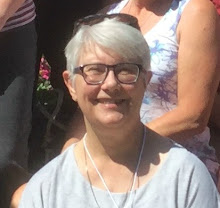In my lifetime I have seen attitudes swing from a focus on the Humanities to Technology.
Is this a good thing? Not always, in my opinion.
Perhaps setting aside Humanities as an area of study has led to less humane treatment of others. A lack of understanding of how human beings are all part of one race, one people. All *human* in their diversity.
Ignoring Humanities means that we understand less about our own selves - and those around us.
Throughout the centuries artists and poets have tried to capture what makes us 'human'. In high school English, we had a component of poetry, in all its forms. In English 12, our teacher brought in current 'pop' records and we studied those songs for the poetry they were, set to music. I still remember the day she brought in Simon and Garfunkle's latest lp with the song 'Richard Cory' and discussed life, success and even, yes, suicide. How money doesn't necessarily buy happiness.
Many of our greatest story tellers put their poetry to music. When I was a teenager, Leonard Cohen became popular, with his mystical lyrics, set to melodious notes that lifted and carried me along, wondering what he was actually trying to say. Sometimes I thought I understood, others? Not so much. But the music kept me coming back to listen and listen again.
Gordon Lightfoot was another singer/songwriter that told stories with his music and words. Joni Mitchell captured vivid images in her web of song.
Bob Dylan (taking his stage name from the poet Dylan Thomas - there's a clue!) also intrigued my generation and others to follow.
Many poets seem to be able to choose a phrase that suddenly illuminates something about being human. If nothing else, poems frequently cause people to stop and think.
John Donne's assertion that 'no man is an island' struck me particularly as a teenager - I looked around the classroom and saw the group of us as one, yes, even those I didn't like much. We were part of humanity, part of a collective story.
Words have always held power. What we call myths frequently dig into what it means to be human - or not.
Right now I am reading The Wood Wife by Terri Windling. It is a novel about a writer trying to understand the lives of a couple - he a poet, she a painter.
Other writers that I enjoy also pull from poetry, some writing their own, some referencing other writers. Louise Penny has a major character who is a poet. Ian Rankin frequently uses music lyrics as reference points in his stories.
And so many others, too many to name.
For me, a book needs to be written eloquently. What does that mean? To me it means that language must evoke something. Look at the mundane in a way that is fresh. Enlightening.
I rarely read poetry as such these days, but I find the thread of poetry runs through the books I choose to read. And no, I haven't forgotten writers such as Margaret Atwood, Guy Gavriel Kay, Dorothy Dunnett, who was the queen of character development and the descriptive phrase that shone light on a person and situation.
Words matter.







No comments:
Post a Comment